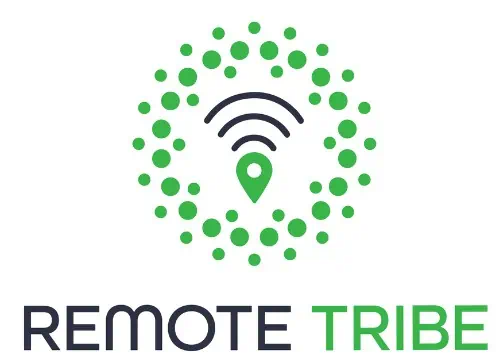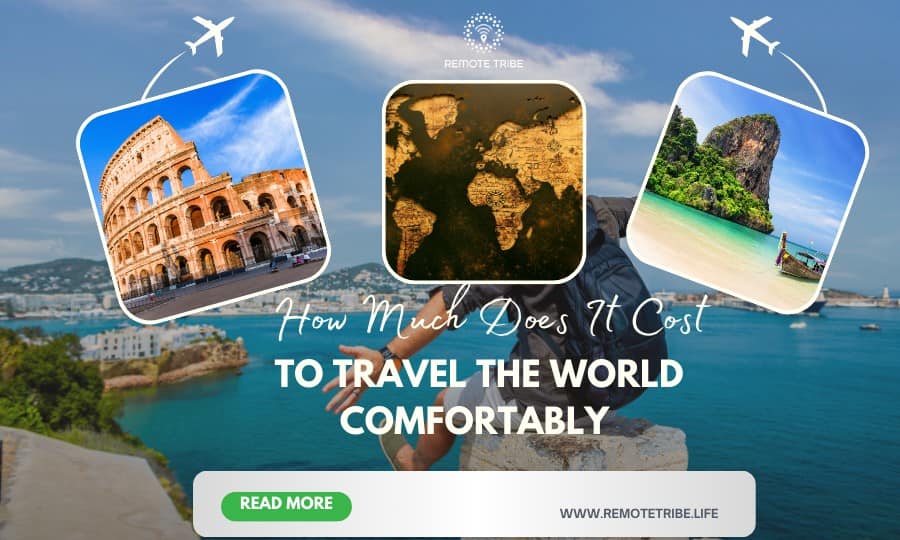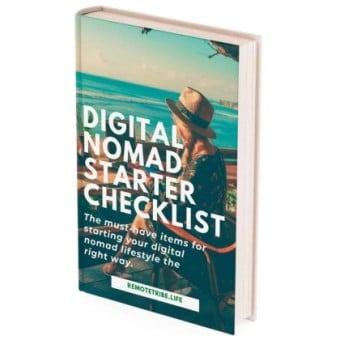Exploring the world is an exciting fantasy in the hearts of dreamers as it paints beautiful visions of other cultures, geography, and adventures. Traveling from one continent to another, trying different foods, and seeing some of the most stunning views also elicit interest in the hearts of so many people. But to make this dream a reality, they must go beyond the desire to go on an adventure; this needs a good financial plan. Budgeting for long-term travel is important because it enables one to plan the trip so that they do not run out of cash. It helps you make the best decisions to optimize your travel experience, leaving no room for unnecessary expenses that can quickly dampen your spirit. Appropriate budgeting extends the scope of traveling and forms a successful and enjoyable traveling experience.
How Much Does It Cost? Unveiling the Variables
Regarding the cost of traveling the world, there’s no fixed answer. Several variables influence travel expenses, including:
1.Travel Style: Your travel style also influences the amount of money you will spend on the trip. Any trip that includes quality accommodation, quality food, and quality sightseeing events will be expensive. On the other hand, budget traveling can consist of hostels, street foods, and engaging in activities that do not require as many expenses as those above.
2.Destinations: The general cost of living and movements within the different areas of the world can be quite different. For example, accommodations and food in Southeast Asia can be very affordable compared to the Caribbean, which has a much higher cost of living and tourism. Destination is everything, honestly, as wherever you travel can influence the rest of your cost factors heavily.
3.Travel Duration: The duration of your trip also determines how much you are likely to spend. A one-year expedition will need more money as the journey is longer than a two-month trip, which could lead to packing money more tightly. This also weighs in in terms of preparation, and you may have to spend more money to bring more items than if you were going for a lesser amount of time.
4.Transportation: The cost of transportation is another factor you need to consider because the mode of transport you choose can significantly influence the overall cost. Air transport is generally costly compared to other means of transport like buses and trains, and even more so for international transport. However, air transport can be some of the most efficient ways of travel, as you get to other places quicker. Therefore, you should just weigh your options when trying to find the best way to travel.
5.Accommodation: Expenditure on accommodation can also be expected to be highly volatile. Those traveling on a tight budget prefer hostels, guest houses, or Airbnb since they are cheaper than hotels. However, this is just dependent upon wherever you may be traveling, as some places may offer some of these options and others may not.
6.Food: Other behaviors, such as eating, can also affect costs. Having street foods or preparing your meals is generally cheaper than buying restaurant’ meals, as the latter can be expensive, particularly in costly locations. You can easily go to the market wherever you are residing and purchase a few groceries for your stay and prepare something from home.
7.Activities: The kind of activities you adopt will determine your budget. Tour guides, adventure activities, and other related packaged services are often expensive. However, you can Google options of activities that are not as costly and still have an excellent experience.
8.Visas & Permits: It should also be noted that depending on the country you would be visiting, visas or permits are necessary and may be part of the overall cost. As mentioned earlier, destination is everything and weighs in heavily on the cost factors you will experience.
For more detailed planning and more great tips regarding budget travel and long-term traveling, one should visit Earth Trekkers platform and Hecktic Travels.
Here's a great video of a couple who breaks down the cost
The World for a Year: A Sample Budget Breakdown
Here’s a breakdown of what an average, comfortable year of travel could look like and its estimated cost values. Taking an average daily budget of $75, here’s an approximate yearly breakdown:
Accommodation ($20/day): $7,300
Economy lodgings like hostels, guest houses, and cheap hotels help keep costs low. Hostels provide dormitory-type rooms, which are cheap but offer a shared atmosphere. Many countries have guesthouses, similar to budget hotels, that provide more affordable private accommodations than traditional hotels.
There are also Airbnbs that you should consider, as sometimes those provide an even cheaper option when traveling alone or in a group.
However, again, this is dependent upon location.
Frequenting to local restaurants, eating fast foods, and learning to cook occasionally can do enough to accommodate the budget. Most areas serve tasty street foods at a much lower price than those served at restaurants. Visiting local markets and cooking in a hostel or rental kitchen can help to cut down food costs even more. Obviously, this cost will be dependent upon the person so it will vary.
Transportation ($10/day): $3,650
Taking either a low-cost airline or local transportation like buses and trains are cheaper modes of transport from one place to another. Low-cost flight operators often offer cheap fares when booked well ahead of time. Road transport through buses and trains is comparatively more affordable and usually involves more attractive and picturesque routes. However, keep in mind that sometimes quantity and quality go hand in hand.
Activities ($10/day): $3,650

Everyday expenses for touring, entrance fees, incidental expenditures, and occasional indulgences are necessary. Some attractions may be charged, but there are free city tours, events, and even natural wonders that one can visit. Setting aside some money for other paid activities is important so that one does not live a very basic lifestyle. However, you can easily use the Internet to look up free activities you can participate in and still create an amazing time.
Subscribe to our Newsletter
Get The Latest News On Digital Nomads, Money Online, Cool Remote Working Communities, And Much More.
Spam-Free, Unsubscribe anytime!
Visas & Permits ($1,000/year): $1,000
The cost of visas and permits, which are compulsory for travel to various countries, should also be included. The cost of a visa differs from country to country depending on the duration of the visitor’s stay. Collecting information about visa requirements and applying for long-term or multiple-entry visas will simplify the processes and save money.
Miscellaneous ($5/day): $1,825

Such costs range from washing clothes to buying souvenirs, among other incidental costs. Setting aside petty cash that one can spend on miscellaneous expenses is advisable as it allows for any other fees that one cannot have catered for in the main budget. This category also helps to make you consider unexpected purchases or what you may spend for an emergency case. With even the miscellaneous items covered you don’t have to struggle to make ends meet and can get a better grasp on your budget.
Total Estimated Cost: $22,900
This breakdown creates a perfect and realistic money-spending plan to help anyone travel for a year without finding it a tough time to undertake the trip smoothly. When looking at this plan there is plenty of “wiggle room” as some call it to take into consideration of undetermined or unplanned things that could occur. There is also room for interpretation when it comes to this plan, as every individual is different and will want to spend more money in different categories or doing other things.
Professional Hobo offers specific guidelines and case studies that are more helpful if one is planning for longer travel.
Long-Term Travel Hacks: Stretch Your Dollar Further
1. Work Remotely: Some travelers use their money to earn a living or earn additional income through online work. One can freelance, become an online tutor, or search for other jobs with regular pay. Being a traveler and remote worker is honestly a power play, as you get the best of both worlds in this situation.
2. Travel Slow: Slow travel helps people integrate with the locals and save money on transportation. Think of house-sitting, where you get free accommodation as you care for the owner’s house and pets. Services like Trusted Housesitters bring together travelers and homeowners seeking suitable house-sitters by offering a cheap, authentic vacation experience. When traveling slower, you also get a chance to actually take in the culture and enjoy some events you may not get to when on the move constantly.
3. Utilize Travel Passes: Rail tickets, including the Eurail Pass, or bus tickets, such as regional bus passes, can be cheaper than regular tickets. Such passes can be used to travel to as many destinations of interest within the given time frame without spending much on individual tickets. Why would you not invest in one thing that can take you to numerous different locations, all with minimal cost and maximum enjoyment?
4. Embrace Free Activities: Embrace free experiences like walking tours, cultural performances, and museum days. They can enhance your experience, or at least that is what they promise to do, but it will not cost you a cent. The main thing in many cities is that free walking tours are always held with the help of locals, and many museums have free days or times. You can also find out if other free activities are going on by simply looking it up online.
5. Couchsurfing: Couchsurfing enables one to stay with the host for free, and the host also provides food and cultural aspects. Platforms like Couchsurfing.com help connect travelers with people with a spare bed or couch on which the traveler can crash. It also eliminates costs and is an interesting way to engage with the locals and make new friends.
6. Workaway/Volunteering: Such websites like Workaway allow travelers to work with hosts who provide accommodation and food in exchange. These can be anything from farming to teaching English. This exchange is an excellent opportunity to save money on a trip, have good experiences, and, perhaps, make friends with a local.
7. Cook Your Meals: Cooking your food is always cheaper than eating at restaurants every day of the week. Purchasing food from local markets and then cooking in a hostel or rented kitchens drastically reduces the amount of money spent. It also enables you to experiment with local food, improve your cooking skills, and take cultural expeditions. There are special experiences where you can actually sign up for some cooking classes when visiting, and this way you can further learn the culture and cook from home too.
For more information and worldwide budgets for traveling long-term, check out The Rambling Unicorn which provides useful guides and tips. Through such strategies, you will be better positioned to achieve your long-term travel aspirations while practicing austerity. These hacks are cost-effective, improve the overall travel experience, and provide a more engaging interaction with locals. By organizing the trip in advance and being ready to seize any opportunities to reduce expenses, one can have an unforgettable traveling experience, providing himself with all the necessary comforts.
Conclusion
Budgeting is critical, especially if you want to turn your dream of traveling the world into reality. One can have a comfortable and meaningful trip by assessing and identifying the significant factors affecting travel costs and the various cost-cutting measures.
For more details and related information, you may want to look into investing in travel insurance to insure your trips. It is possible to travel around the world if proper financial planning and budgeting are taken into consideration. Have fun on your journey and create memories that will last a lifetime without the stress of worrying about money or other factors.
Proper planning allows one to engage in various cultures and beautiful moments while also being financially secure on any adventure.
Your Travel Resources Handy In One Place 🗺️
🧳 Travel Insurance
Enjoy peace of mind during traveling and don’t leave your country without good travel insurance. We recommend Insured Nomads or Genki for international travel insurance.
💰Travel Finances
Get your travel finances smart and straight with Wise or Revolut.
🏨 Accommodations
For a short stay check out Booking or Agoda. Staying longer? Take a look at the offers at Airbnb. Hostels are the cheapest option that you can explore at Hostelworld.
🏡 Recommended places for long-term stay
Wanna know the accommodations where we lived during our digital nomad journey? Check out the places we enjoyed the most!
🎫 Book tours
Are you up for taking part in epic guided tours? Book ones you like using GetYourGuide or Viator.
🚗 Rent a car
To find great rental car deals check out Rental Cars and get ready for your car trip!
✈️ Book a flight
For the hottest deals check out Skyscanner, Kayak, Google Flights or WayAway.
🛡️ VPN
To stay safely connected while traveling, don’t forget about a good VPN. We recommend Surfshark or NordVPN.







